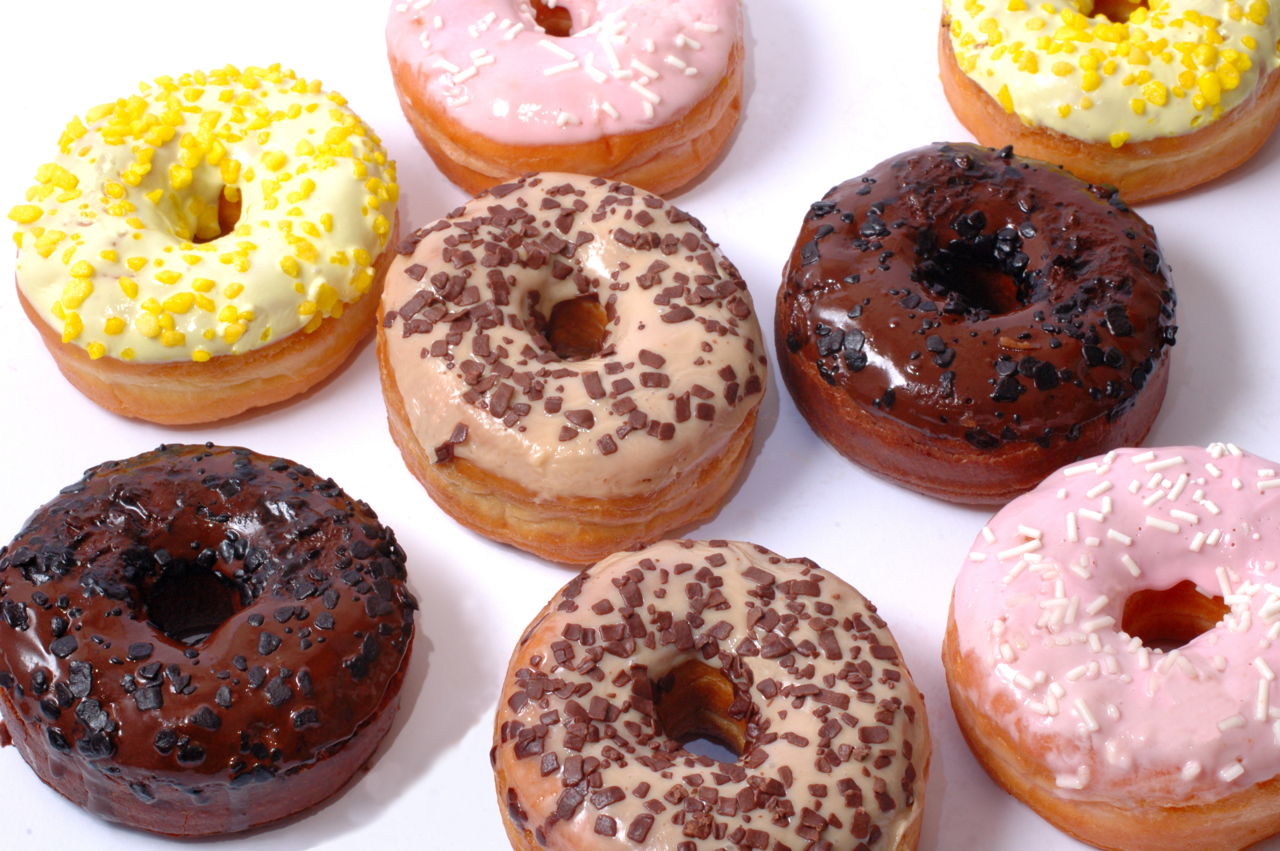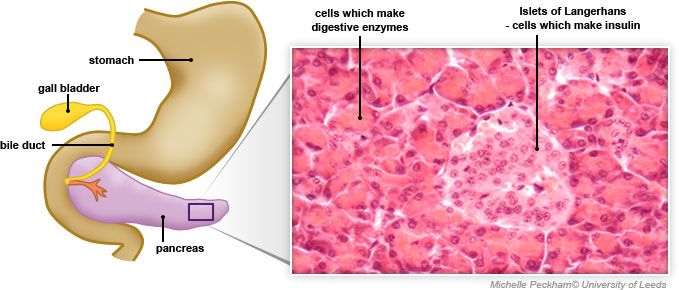This topic takes on average 55 minutes to read.
There are a number of interactive features in this resource:
 Biology
Biology
 Human biology
Human biology
 Physical education
Physical education
When you digest a meal, particularly one which is high in carbohydrate foods such as bread, pasta and cakes, the level of glucose in your blood rises. Glucose is important to the cells of the body, particularly the brain and the muscles, as an energy source for cellular respiration. If you don't eat for a long time or take a lot of exercise the blood sugar levels could fall dangerously low. It is important that the level of glucose in your blood (often called the blood sugar level) is controlled so that it does not rise too high or fall too low. This control is brought about by the pancreas. The pancreas, just like the gonads, is a heterocrine organ, as it acts both as an exocrine gland, making enzymes for the digestive system, and endocrine, secreting hormones directly to the bloodstream to control the blood glucose levels.
Your pancreas constantly monitors and controls your blood sugar levels using two hormones. The best known of these is insulin. When your blood sugar levels rise after a meal your pancreas releases insulin. Insulin allows glucose to be taken into the cells of your body where it is used in cellular respiration. It also allows soluble glucose to be converted to an insoluble carbohydrate called glycogen which is stored in the liver and muscles.

Eating food raises your blood sugar levels - and carbohydrate foods like these make it rise particularly quickly.
Adrenaline is a hormone that plays a crucial role in the fight-or-flight response. When adrenaline kicks in, our heart rate goes up to provide increased blood flow to muscles. That is not the only effect that adrenaline has, it also has an effect on blood sugar level. The general outcome is to increase blood sugar levels, so there is plenty of energy around to supply our body in order to fight or flight.


When your blood sugar levels fall below the ideal level your pancreas releases a different hormone called glucagon. Glucagon makes your liver break down glycogen, converting it back into glucose which can be used by the cells.
Therefore, blood sugar levels are regulated mostly by these two hormones: insulin and glucagon. These two hormones have opposed effects on sugar blood levels, this interaction is known as antagonism.